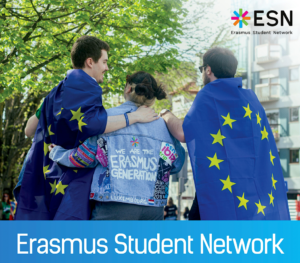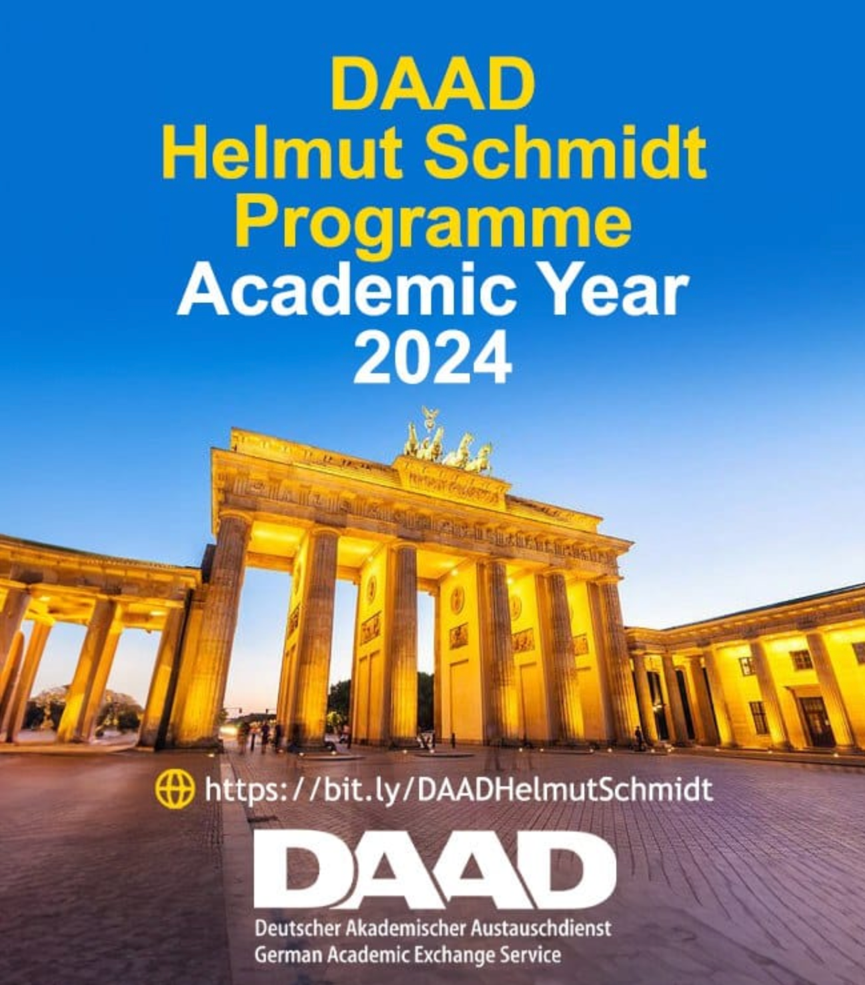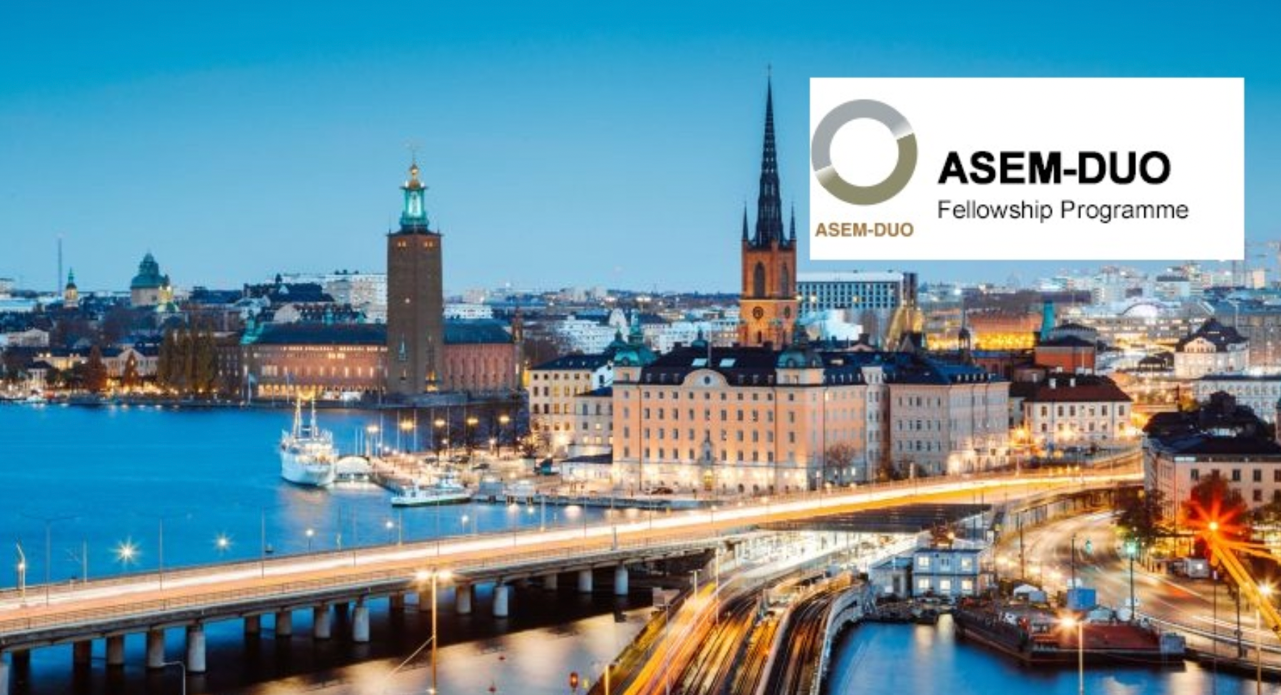The origins of Erasmus+ go back to an earlier initiative, the Erasmus programme. Launched in 1987 by the European Community (now the European Union), the Erasmus programme was part of an effort to deepen integration and cooperation in the field of education in Europe. It aimed to promote student mobility and exchange opportunities in higher education across the European continent. By promoting cross-border learning and cultural exchange, the programme aimed to foster a stronger European identity among students. The name ‘Erasmus’ itself is an acronym that stands for ‘European Community Action Scheme for the Mobility of University Students’.
The programme offered students the opportunity to complete part of their studies at a university or college in another European country. During their stay abroad, students were able to earn credits that were recognised by their home university. Over time, the Erasmus programme has expanded and diversified to include various additional aspects. These included the mobility of university staff, increased co-operation between academic institutions and the development of partnerships between universities and companies from different sectors.
In 2014, the original Erasmus programme was expanded and integrated into the more comprehensive Erasmus+ initiative which now covers areas beyond higher education, including vocational education and training, school education, adult education, youth activities and sport. This has allowed Erasmus+ to serve as an overarching banner for a wide range of mobility and co-operation opportunities in different areas across Europe.

The original Erasmus programme was based on the fundamental idea that international cooperation and cultural exchange are essential for a peaceful and prosperous future. The expanded Erasmus+ programme continues to provide important educational opportunities that promote student mobility through study abroad periods across Europe, allowing students to experience different cultures within the continent and broaden their cultural and academic perspectives. Having participated in an exchange programme myself, I am well aware of the impact such an experience can have on a person’s development. While Erasmus+ is traditionally associated with European countries, the future vision for Erasmus+ is a more globalised approach. Looking to the future, it is vital that we explore how the programme can evolve to meet the challenges and opportunities of the 21st century. Erasmus+ can extend its reach beyond European borders by promoting co-operation with universities and institutions around the world. This could further enrich the cultural diversity of study experiences while contributing to a more interconnected global society.

Many prominent figures from business and politics were former Erasmus students and have benefited from the intercultural experience offered by the programme. Examples include French President Emmanuel Macron, who studied philosophy at the University of Paris-Nanterre and completed an exchange programme at the University of Bristol in the UK as part of Erasmus in 1993. Another example is Jens Stoltenberg, Secretary General of NATO and former Prime Minister of Norway, who studied economics at the University of Oslo and spent a semester as an Erasmus student at the University of Belgrade. Both Macron and Stoltenberg have publicly acknowledged their participation in the impactful Erasmus programme. Today, Erasmus graduates are successful in a variety of fields including politics, business, science and the arts and have gained valuable international perspectives through the educational opportunities the programme offers.
It is important to consider the impact of Brexit on the UK’s participation in Erasmus+. Before leaving the EU, the UK was an active participant in Erasmus+ and many UK students, researchers and organisations benefited greatly from the funding opportunities and the chance to collaborate across Europe. However, from 2021, UK students and institutions have no longer had access to Erasmus+ financial support, cooperation programmes and mobility options. The UK has decided not to participate in the 2021-2027 Erasmus+ funding cycle and instead, it announced the creation of the Turing Scheme, an alternative programme with a broader global focus beyond Europe, designed to support international student mobility in the UK.

Although the UK is no longer officially participating in Erasmus+, bilateral agreements have been concluded to facilitate student and researcher exchanges between the EU and the UK. Looking to the future of Erasmus+, the coming years will undoubtedly bring changes to reflect the changing needs of society. A greater emphasis on inclusivity, digital innovation and sustainability will shape the way the programme will continue to play a central role in the education and experiences of students in order to foster a generation that not only excels academically, but also has global awareness and social responsibility. Erasmus+ promises a world where borders are overcome and knowledge knows no boundaries.
While the European Union initiates and mainly funds Erasmus+, other important players are also involved. Educational institutions such as universities, schools and colleges across Europe actively participate in Erasmus+ by involving their students and staff in mobility experiences and projects. National governments also play an important role by promoting the benefits of the programme and encouraging the participation of students, teachers and trainers. Non-governmental organisations involved in education, youth development and related issues often work with Erasmus+ to achieve the objectives of the programme. The programme receives financial support from the European Union, which allocates the budget via the European Commission. This budget is then distributed to support various Erasmus+ activities and initiatives. The European Commission oversees the implementation of the programme and defines its overall strategic direction. In addition, each participating country has a national agency responsible for managing and promoting Erasmus+ in that country.

Concerted efforts are currently being made to ensure that the benefits of international mobility opportunities are accessible to a wider variety of students, such as those from disadvantaged backgrounds or students with disabilities.
The amount of financial support provided by an Erasmus+ grant can depend on a number of factors, including the destination country, the length of time spent abroad and whether students are studying on an undergraduate or postgraduate programme. The scholarship is intended to help cover the additional costs of studying abroad, but cannot cover all expenses as affordability may depend on individual circumstances and the cost of living in the host country. The appropriateness of the Erasmus+ grant is therefore a subjective decision that depends on the student’s personal situation and the cost of living in the chosen location.
Erasmus+ scholarships generally cover the costs of travelling to and from the host country. Students also receive a monthly grant to help cover the cost of living during the studies abroad. The scholarships also provide health, accident and liability insurance cover for the duration of the mobility experience. However, the scholarship does not cover all costs associated with studying abroad. Individuals often have additional expenses such as accommodation, meals, local transport, study materials and personal items that need to be financed in other ways.

Therefore, it is advisable to find out about the cost of living in the city or region where one plans to study and budget accordingly before deciding to embark on such an experience. Furthermore, students are encouraged to consider additional sources of funding such as scholarships, possible part-time work (if permitted in the host country) and personal savings to supplement the Erasmus+ grant and ensure a financially sustainable and comfortable stay abroad.
Some argue that the current Erasmus+ grants, which amount to between 300 and 450 euros per month and in some cases up to 600 euros, are insufficient and marginalising for many, as families still have to cover part of the costs of such a stay abroad. Even when additional funding is available for internships, most students have to find alternative sources of income to support themselves while participating in the programme.
Nicu Ștefănuță, is a member of the European Parliament since 2019 and is general rapporteur for the European Union’s 2023 budget. He presented his views about the funds allocated to Erasmus+ and his vision for this important European initiative: “Although the level of Erasmus scholarships varies depending on the country of study and the country of destination, I believe that the amount is still below what is needed for a decent life, without additional support. The problem is that the financial aspect is essential and as an ESN (Erasmus Student Network) survey showed, it is the main reason why many students do not even dare to apply for an Erasmus scholarship, because they know that they cannot afford it. Unfortunately, Erasmus+, despite being the flagship program of the European Union, still favors somehow children from wealthier families. It is true that there is a top-up system, which offers the possibility of granting a supplement of 250 EUR (practically as a social grant), but the obtaining procedure is cumbersome. We must increase the budget of the Erasmus program and increase the amount of student grants. I estimate that 1,000 EUR per month could be an acceptable level, but we are still far from it. In 2022 we managed to increase the scholarships by 67 EUR and in 2023 by another 34 EUR. It’s neither much nor little… The total budget of the Erasmus+ program has been improved by EUR 200 million, but the idea is not to increase the number of beneficiaries of these scholarships, but to make them accessible to any young student who wants such an experience”.

ESN (Erasmus Student Network) is an independent, non-profit international association supported by the Erasmus+ Programme of the European Union and the European Youth Foundation of the Council of Europe. Its aim is to promote the interests of students who spend part of their studies abroad. The organisation is committed to improving the experience and living conditions of exchange students and promoting study abroad. The ESN network comprises 280 local chapters in 32 European countries and Azerbaijan. After interviewing thousands of students, the ESN survey mentioned by Nicu Ștefănuță revealed that more than 50% of respondents felt that Erasmus+ grants only covered 50% of their costs, while 37% said that the grants were not enough to cover their living expenses in full.
In March 2023, the European Commission adopted a revised Erasmus+ annual work programme, increasing the total budget for 2023 to a record €4.43 billion. This is the highest annual financial support the programme has ever received. Increasing the budget is certainly a step in the right direction. EU officials explained that “the review entails a slightly higher budget while increasing support for the needs of Ukrainians who have left their country.”
In 2022, a total of 26,000 projects and about 1.2 million participants were involved in various Erasmus+ programmes. The latest call for proposals under Erasmus+ has a budget of 189.2 million euros and runs from 3 October 2023 to 6 February 2024. This call aims to facilitate the expansion of the European Universities initiative to more than 500 universities.
The Erasmus+ programme has undoubtedly reached important milestones and has played a crucial role in promoting European integration, as well as contributing to the development of a common European identity and shared values. Since the introduction of Erasmus+, millions of students have taken part in study exchanges and gained valuable international and intercultural knowledge by studying abroad. In addition, Erasmus+ has encouraged co-operation between higher education institutions across Europe, leading to an improvement in the quality of education and research. At the same time, the programme has focused on developing skills that meet the needs of the labour market. By offering practical experience and internships, it has effectively improved the employability of its participants over the years. In addition, Erasmus+ actively promotes innovation, language learning and social engagement.

In view of the urgent global need to combat climate change, the Erasmus+ programme actively incorporates the principles of environmental sustainability. It plans various initiatives to promote eco-friendly travel opportunities, carbon offsetting programmes and projects dealing with sustainable development. By promoting environmental awareness and supporting responsible practises, Erasmus+ aims to contribute to the creation of a more sustainable and environmentally conscious global community.
Erasmus+ is also taking steps to become more environmentally friendly. One approach is to promote the use of environmentally friendly transport methods. For example, the programme offers additional scholarships if participants use the train instead of the plane, as air travel has a greater impact on the environment. Erasmus+ also promotes online study programmes as a more environmentally friendly option. While online alternatives can be more cost-effective as they reduce relocation costs, it is important to recognise that they may limit students’ ability to gain the intercultural experience that comes with studying abroad.
In this context, Nicu Ștefănuță, who was recently elected Vice-President of the Green Group in the European Parliament, emphasised that the experience of the Covid-19 years has shown that online education, despite its potential shortcomings in certain areas, can also have a significant intellectual impact. The presence of technical barriers and inequalities in digital infrastructure can hinder access to virtual opportunities. In the meantime, Nicu Ștefănuță encourages young people to embrace Erasmus+ programmes with confidence and urges them to set out and have the transformative experience of learning and living in a different place to where they were born. Undoubtedly, such experiences will prove valuable in the long run.
Although the Erasmus+ programme has achieved considerable success in promoting international mobility, cooperation and cultural exchange, it faces various challenges. The demand for scholarships often exceeds the allocated budget, and the stability of the programme can be affected by political uncertainties and geopolitical tensions within the European Union or in neighbouring regions. Furthermore, events such as natural disasters or global health crises can temporarily disrupt international travel and bring mobility initiatives such as Erasmus+ to a standstill, emphasising their vulnerability to unforeseen obstacles. Consequently, it is imperative for the programme to adapt and formulate strategies that are aligned with the evolving and challenging global landscape.

The Erasmus+ programme, by facilitating the mobility of students and professionals across Europe, can potentially contribute to certain migration patterns, including the movement from East to West within the continent. However, the existence of accurate statistics measuring the extent and correlation between these phenomena remains uncertain. While the programme undeniably enhances the skills and experience of individuals who eventually return to their home countries, some argue that it may also contribute to “brain drain, as some students choose to remain in more economically developed countries after their Erasmus+ experience. Participation in Erasmus+ is often viewed favourably by employers as it offers increased employment opportunities both domestically and internationally.
Nevertheless, it is important to support and further develop the Erasmus+ programme for a number of compelling reasons. These range from promoting cultural understanding and tolerance, supporting quality education and empowering youth, to promoting global co-operation and stability. The programme plays a central role in building a sense of European identity among participants and promotes shared values and innovative ideas. In view of the many positive results, it is essential to invest in the future of Europe by supporting and expanding the Erasmus+ programme.
Several other international programmes that focus on study abroad have similarities to Erasmus+ in that they also provide opportunities for international mobility, cultural exchange and academic enrichment. The US government-sponsored Fulbright Programme is the flagship international educational exchange programme. It awards grants to students, scholars, teachers and professionals who wish to study, teach and conduct research abroad and facilitates the stay of foreign colleagues in the United States. The German Academic Exchange Service (DAAD) promotes international academic exchange through various scholarships and programmes for students and scholars that include study grants, research stays and language courses. The Chevening Scholarship, initiated by the UK government, is an international scholarship programme aimed at supporting leaders from around the world. It offers fully funded scholarships for one year of postgraduate study in the UK.

The ASEM-DUO (Asia-Europe Meeting) Scholarship Programme facilitates student exchanges between universities in Asia and Europe and promotes collaboration. CAMPUS Asia, a trilateral exchange programme, involves universities in China, Japan and South Korea. The New Colombo Plan, an Australian Government initiative, encourages Australian students to study and undertake internships in the Indo-Pacific region, strengthening Australia’s regional ties. JASSO offers scholarship programmes for international students who wish to study in Japan. Switzerland also offers scholarships to foreign scholars and researchers to enable them to pursue research or postgraduate studies at Swiss universities, which are notoriously expensive.

The Canadian government offers various scholarship programmes, including the Vanier Canada Graduate Scholarships, the Banting Postdoctoral Fellowships and others, to attract and retain top talent from around the world. All of these programmes, including Erasmus+, have the common goal of promoting international educational collaboration, promoting cultural exchange and providing students with a deeper understanding of international interdependence and expanded opportunities to broaden their academic and personal knowledge.
To conclude our examination of the profound impact and significance of Erasmus+, it is important to recognise that this programme goes beyond a purely academic initiative. It serves as a powerful catalyst for positive change, fostering connections across borders and demonstrating the belief that investment in education is tantamount to investment in the fabric of our common humanity and global peace.
As we look to the future, we should take inspiration from Erasmus+ and use it as a model, knowing that the collective destiny of our world depends on the understanding and co-operation we foster today. In an increasingly interconnected world, we hope that Erasmus+ will pave the way for a brighter and more inclusive future, where barriers are broken down and opportunities for personal and intellectual growth are accessible to all.

